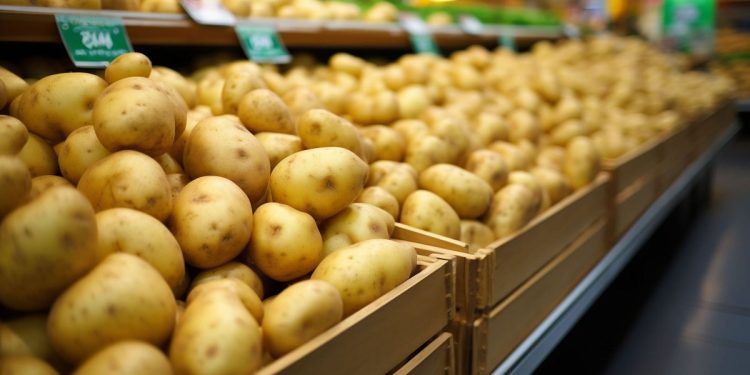#PotatoFarming #AgricultureChallenges #WeatherImpact #SupplyChainDisruptions #ImportSlowdown #SustainableFarming #AgriculturalInnovation #MeatPrices #CerealSectorStability
In the northern regions of Spain, potato prices are on the rise, driven by a reduction in the overall supply. Adverse weather conditions, particularly excessive rainfall, have hampered agricultural operations, leading to disruptions in the potato supply chain across major European producers. This has left significant portions of the harvest either stranded in the fields or damaged due to suboptimal storage conditions.
Given Spain’s heavy reliance on potato imports, especially from its primary supplier, France, the slowdown in importation has become a primary factor contributing to the price hikes. Farmers find themselves with limited stocks, a situation exacerbated by the near-total ban on anti-sprouting agents that historically aided in preserving potatoes in optimal conditions for extended periods. Presently, conservation efforts rely heavily on expensive refrigerated chambers, posing a financial challenge for many farmers.
Simultaneously, the agricultural sector has witnessed a notable decrease in the prices of lamb and kid meat. This, however, can be attributed to the expected seasonal drop in prices during the holiday period.
In contrast, the cereal sector maintains stability, awaiting the new year to unveil potential trends that could shape its trajectory in the coming months.
The confluence of weather-related challenges, import slowdowns, and changing preservation regulations poses significant hurdles for potato farmers in northern Spain. As the agricultural community navigates these issues, the need for sustainable practices and innovative solutions becomes increasingly apparent. The broader fluctuations in meat prices and the steady state of the cereal sector further highlight the intricate web of factors influencing the agricultural landscape.







